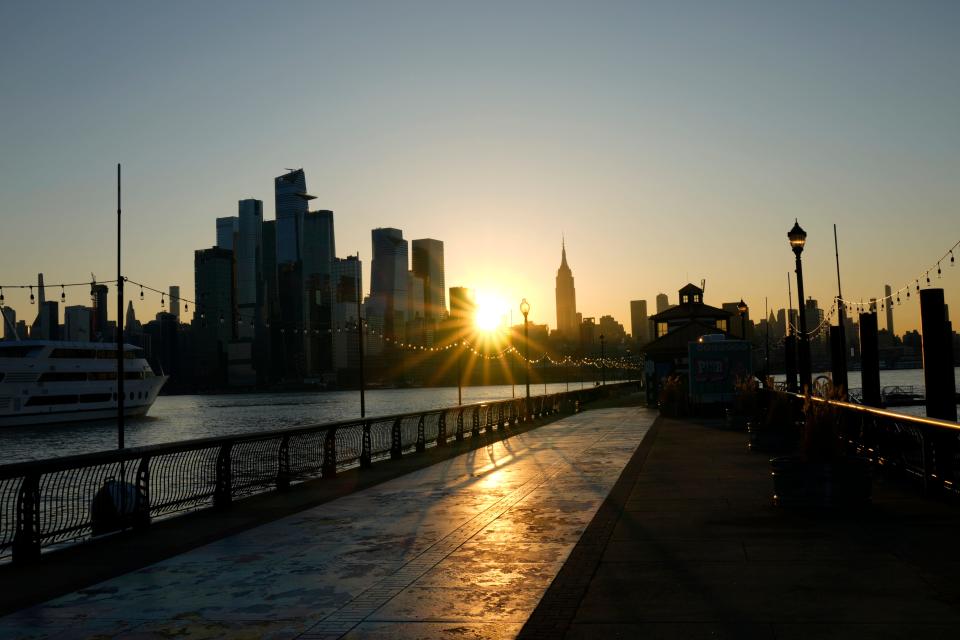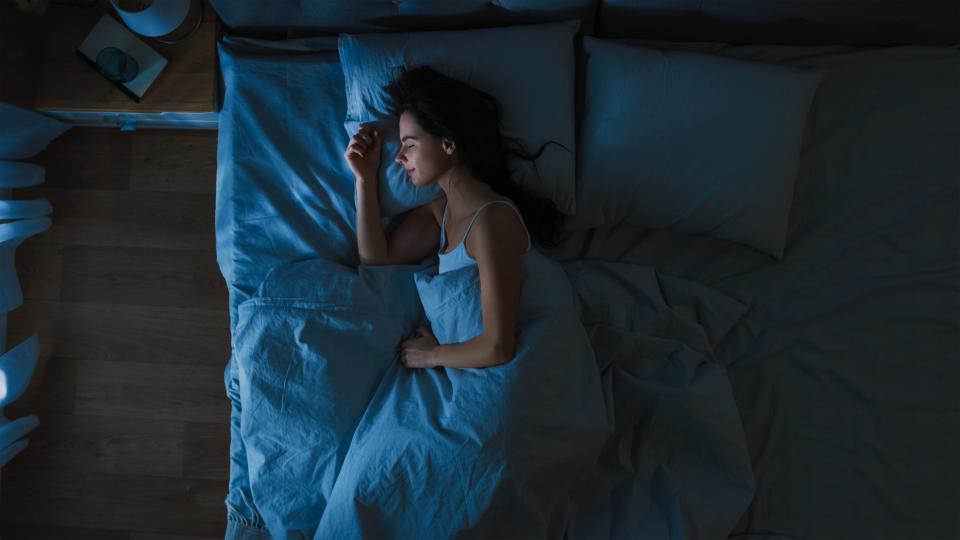Daylight saving debate: Keeping clocks back permanently is better for health, doctors say
In a state divided by politics, sports teams and even regional food names, there are few things that unite New Jerseyans as much as their weariness of seeing the sun set at 4:30 p.m. in December.
But one group won't complain when the U.S. ends the consistently popular daylight saving time this weekend and the sunset falls back an hour to standard time: sleep doctors.
Standard time, with its earlier sunrises and sunsets, is much better for your health, they say. So much better that the American Academy of Sleep Medicine published a new position paper this week concluding that seasonal time changes should be abolished in favor of standard time.

“Permanent standard time helps synchronize the body clock with the rising and setting of the sun,” said Dr. James A. Rowley, president of the AASM. “This natural synchrony is optimal for healthy sleep, and sleep is essential for health, mood, performance and safety.”
The position is supported by many medical experts — even if it flies in the face of popular opinion.
A Monmouth University poll last year found that only 13% of Americans wanted year-round standard time, 44% wanted to keep daylight saving permanent, and 35% wanted to continue changing the clocks every autumn and spring.
Efforts have been made recently at the federal level to make daylight saving permanent, but without success. The Senate approved the "Sunshine Protection Act" last year, but the bill gained no momentum in the House of Representatives.
Saving energy, but dark mornings
The idea of seasonal time changes dates back centuries, but it was only enacted in the U.S. in 1918 as a way to conserve energy by having an extra hour of daylight in late spring, summer and early fall. President Richard Nixon signed a law creating permanent daylight saving time in 1974, but it was soon scrapped, because darker mornings were seen as a safety hazard during commuting hours, especially for children going to school.

All states except Hawaii and Arizona have seasonal time changes.
In New Jersey, state Sen. Shirley Turner has introduced several versions of a bill in recent years that would make daylight saving permanent, but it has not gotten much momentum.
Matching the circadian rhythm
The four months of standard time more closely matches our body's internal clock, the circadian rhythm that regulates the sleep and wake cycles by taking external cues, most notably sunlight, said Dr. Adrian Pristas, director of sleep medicine at Hackensack Meridian.
“Our circadian rhythm is designed to be exposed to bright light when we get up in the morning, and it’s supposed to start getting darker in the evening, causing dim light melatonin onset, which for most people starts around 7 p.m.,” he said. “If we have too much bright light in the evening, our body won’t produce the melatonin it needs to fall asleep in a timely manner.”

The brain wakes up faster when exposed to morning light, and daily processes get underway more quickly. Disrupting that rhythm can lead to sleep disturbances, fatigue and a general lack of energy, said Dr. Thomas Kilkenny, director of the Institute for Sleep Medicine at Northwell Staten Island University Hospital.
A 2014 study by cardiologists found a 21% drop in the number of heart attacks on the Tuesday after returning to standard time in November compared with other Tuesdays during the year. It also found a 25% jump in the number of heart attacks occurring the Monday after daylight saving springs forward in March.
"Shifting to permanent daylight saving time in the winter would result in more darkness in the morning and more light in the evening, leading to misalignment between the body’s natural rhythm and the timing of routine activities, like going to work or to school," Kilkenny said.
This article originally appeared on NorthJersey.com: Ending daylight saving has health benefits, doctors say

